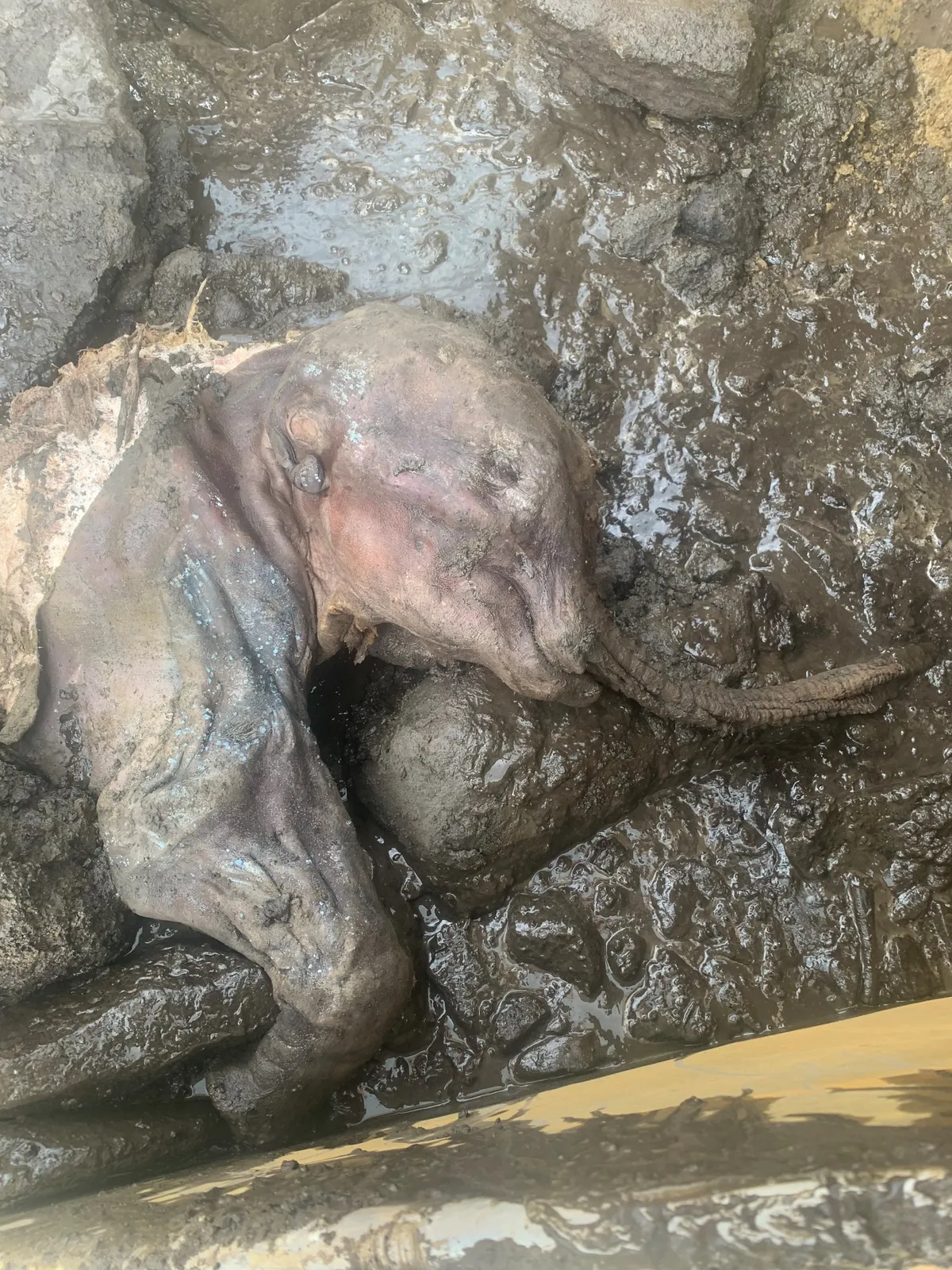For palaeontologists this is a discovery far better than striking gold: miners working in The Yukon in northwestern Canada have uncovered a frozen baby mammoth while excavating permafrost.
The animal has been named Nun cho ga, which means ‘big baby animal’ in the native language of the Trʼondëk Hwëchʼin - the First Nations people that occupy the territory where it was found.
Geologists from the Yukon Geological Survey and the University of Calgary say she is thought to be female and more than 30,000 years old.
Many fossils of Ice Age animals have previously been discovered in The Yukon but mummified remains with intact skin and hair, as seen on Nun cho ga, are incredibly rare.
In fact, Nun cho ga is the best-preserved mummified woolly mammoth yet to be found in North America.
She was found by miners working in the Eureka Creek area of the Klondike gold fields on the northwestern coast of Canada – an area that played a key role in the gold rush of the 19th Century.

"As an Ice Age palaeontologist, it has been one of my life-long dreams to come face to face with a real woolly mammoth. That dream came true today,” said Government of Yukon Paleontologist Dr Grant Zazula.
“Nun cho ga is beautiful and one of the most incredible mummified ice age animals ever discovered in the world. I am excited to get to know her more.”
Trʼondëk Hwëchʼin elders and the Government of Yukon now plan to work together to preserve and study Nun cho ga.
“This is as a remarkable recovery for our First Nation, and we look forward to collaborating with the Yukon government on the next steps in the process for moving forward with these remains in a way that honours our traditions, culture, and laws,” said Tr'ondëk Hwëch'in Chief Roberta Joseph.
“We are thankful for the Elders who have been guiding us so far and the name they provided. We are committed to respectfully handling Nun cho ga as she has chosen now to reveal herself to all of us.”
Read more about prehistoric animals: